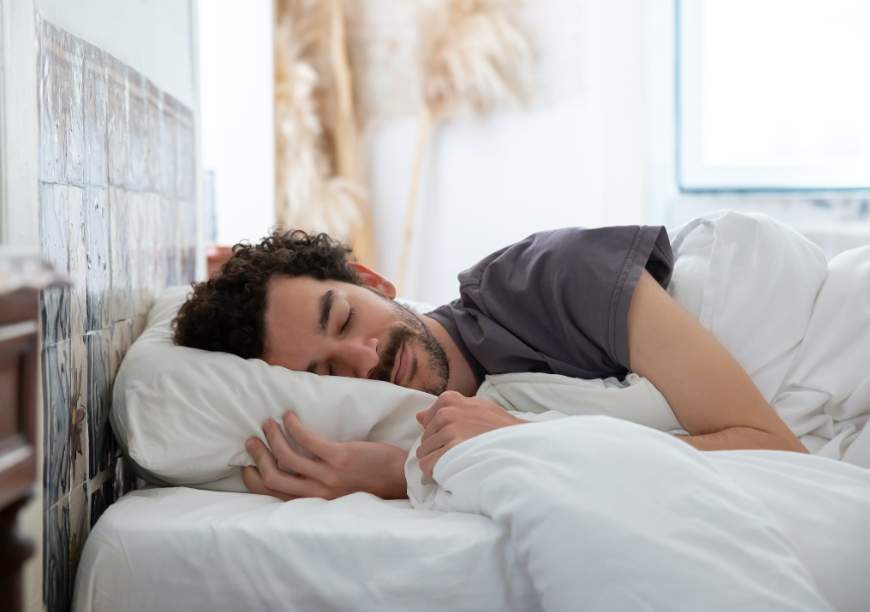What do you think about sleep the pathway to your dreams? Man has always slept, and his sleep has always seemed mysterious; often it was believed to be magical. The dreams that come unbidden when we are sunk in slumber seem not of our doing: they concern people and creatures we have never seen, they bring loved ones back to life, and they play fast and loose with geography and chronology. In many cultures, dream interpretation was a highly prized skill, and dreams were often believed to prophesy future disasters or triumphs.
Today, dreaming and sleeping are no less fascinating than the pronouncements of the High Priests of yesterday. However, modern researchers rely more on brain electrical responses than on esoteric omens. Yet the mechanics of sleep and dreaming remain elusive. Much is known now, but more remains in theory.
The circadian rhythm: Every creature on Earth reacts instinctively to the alternating phases of day and night, light and dark. For some animals, such as the bat, nighttime means activity, while daytime means inactivity and sleep. Mammals tend to be light-lovers and sleep at night, although extreme fatigue and danger may change the pattern occasionally. Research has shown that newborn infants must acquire a 24-hour rhythm. In their first days outside the womb, babies seem to respond to an inborn hourly cycle, which gradually increases to multiples of one. Every first-time parent knows what little respect a baby has for darkness!
As the child becomes accustomed to the habits of its family, it will generally follow them by sleeping when they do and waking at daybreak. A mixture of social conditioning and adjustment to the 24-hour cycle regulates the growing child’s patterns of sleep and wakefulness. Once acquired, the daily rhythm of the body remains with us until our dying day. As with all learned functions, its operation lies in the cerebral cortex, the ‘grey matter’, of the brain.
Dogs also obey the circadian rhythm, but if their cerebral cortex is removed (as happened in a controversial experiment in Chicago in the 1950s), they sleep most of the time, waking irregularly, and they no longer dream. Our biological clock depends on more than the cerebral cortex’s functioning.
The hypothalamus regulates body temperature. This regularly falls from the ‘normal’ 37.0°C to 35.5°C in the early hours of the morning. (Sweating attacks during the night are usually associated with illness or severe sleep disturbances.) At noon, the temperature may rise to over 37.0°C; this is the time when most people achieve optimum efficiency, both physically and mentally.
Roughly two hours later, a sharp change in the biological clock will mark the onset of the ‘post-lunch dip’, whether or not one has actually eaten lunch. The hypothalamus also regulates blood and urine chemical flow. Normal sleepers often drink a lot of fluid before retiring and sleep through to dawn without visiting the bathroom. This is because urine production dramatically decreases during sleep.
Poor sleepers or those with organic problems wake often to relieve themselves. “Do you have to get up during the night?” is a standard medical inquiry used to determine the state of a patient’s general health. The body can gradually adjust to a reversal of its learning cycle over time. Shift workers, for example, changing from a day to a night shift or vice versa, need a week or so to regain their normal performance level.
Scrambling the body’s biological rhythms is harmful; pilots and air stewardesses, for example, are frighteningly at risk from this phenomenon. Consider, too, the implications of international businessmen or jet-setting politicians making major decisions while suffering from long flight effects. Sleep is paradoxical. Although we are deaf and blind to the outside world, sleep is an activity. We are seemingly unconscious, yet at one level—dreams—another kind of consciousness operates vividly.
In some cases, as in nightmares, our dreaming causes us such an extreme reaction that the consciousness it evokes propels us into normal consciousness—and we wake screaming. We seem to be doing nothing as we snore gently, yet we are being ‘repaired’. Soon after falling asleep, body cells divide faster than during wakefulness. During sleep, surges of ‘growth hormone’ are released into the bloodstream when we sleep most deeply, repairing and renewing our bodies while our brainwaves are slow and long.
Minor ailments such as colds are often completely better after a ‘good night’s sleep’ —due to increased production of growth hormone, made more urgent by infection. Insomniacs or light sleepers do not receive their full share of this invaluable hormone. They are often more prone to accidents and illness—they can’t shake off colds and sore throats—than deeper sleepers.
Read More: Key to a Good Night’s Sleep







